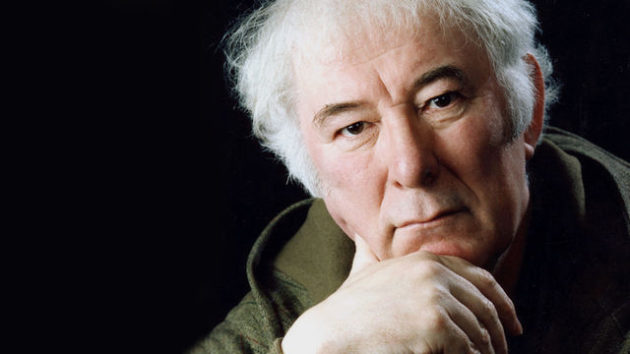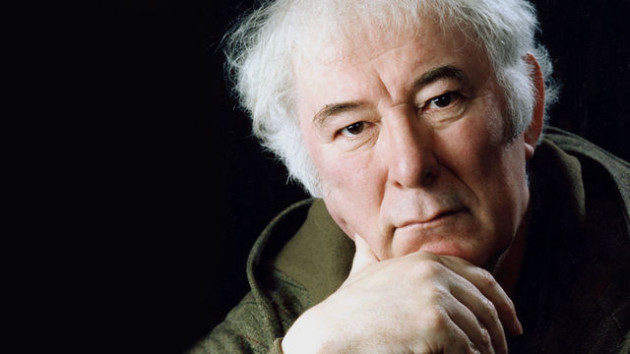
Il poeta e Premio Nobel Seamus Heaney ha detto che ai lealisti dovrebbe essere consentito di sventolare quando vogliono la bandiera dell’Unione.
Per il settantatreenne lo Sinn Féin ha sbagliato a voler rimuovere la bandiera dalla City Hall.
Lo scrittore e poeta ha spiegato martedì al The Irish Times che le proteste e le violenze sfociate in Irlanda del Nord sono state “molto pericolose”.
Il 3 dicembre, il Consiglio Comunale di Belfast ha approvato con 29 voti a favore e 21 contrari la mozione che prevede l’esposizione della bandiera dell’Unione sul minucipio solo in determinati giorni dell’anno..
È stato un compromesso portato avanti dall’Alliance Party, perché la proposta dello Sinn Féin non prevedeva alcuna esposizione della Union Jack.
La violenza è esplosa per le strade di Belfast e in altre cittadine, mentre i lealisti continuano a scendere in strada per protestare.
Tuttavia i disordini hanno occupato le prime pagine di tutto il mondo e i commercianti locali hanno sofferto un calo di vendite perché gli acquirenti, preoccupati, sono rimasti lontani.
Seamus Heaney ha detto che i lealisti “si percepiscono come quasi abbandonati”.
Ha aggiunto: “E a ragione. Penso che lo Sinn Féin avrebbe potuto prenderla con calma. Non c’è fretta di decidere sulle bandiere.
“Che importa? Ma tutto è importante tutto per loro. E ora non c’è modo di tornare indietro sulla decisione, naturalmente.
“Non ci sarà mai un’Irlanda unita, lo sapete. Allora perché non lasciate sventolare la bandiera”.
Lunedì è stato rivelato che il vice primo ministro Martin McGuinness aveva incontrato i manifestanti che contestano la decisione sulle bandiere.
Ha affermato McGuinness: “Ho incontrato alcune persone che sono state coinvolte nelle proteste e ho anche incontrato alcune persone che credevo potrebbero influire sulla fine della violenza per le strade”.
Heaney, che è nato a Derry/Londonderry, si è descritto come una persona che “sa qualcosa di pregiudizio, fin dall’inizio, posso capire i lealisti”.
“Mi ricordo all’inizio dei Troubles a Derry, Eddie McAteer, un grande politico nazionalista, che era come il pater familias del nazionalismo. Egli disse: «Entrambe le parti hanno il diritto al loro fasto!».
“Che era una parola un po’ grande, ma abbastanza vera. Ma non c’è dubbio che la parte lealista porta il fasto all’estremo, pulendo il pavimento per gli altri “, ha detto il poeta che ora vive a Dublino.
I contestatori delle bandiere dicono che limitare l’esposizione della Union Jack è un’erosione dei diritti degli unionisti e dei lealisti e viene vissuto come un “colpo di grazia”.
Durante l’intervista Heaney ha detto che la bandiera era parte del “fattore di diritto” lealista.
Ha aggiunto il premio Nobel: “Lealismo, o unionismo, o protestantesimo, o come volete chiamarlo, in Irlanda del Nord, non funziona come un sistema di classe, ma un sistema di caste.
“Ed essi [i lealisti] hanno un fattore di diritto in esecuzione, la bandiera è parte di esso”.
Per nove settimane manifestanti hanno dimostrato in tutta l’Irlanda del Nord, con alcune delle peggiori scene di disordine focalizzate a East Belfast e Newtownabbey, dove la polizia è stata attaccata con bombe molotov, fuochi d’artificio e lanci di altri oggetti.
Più di 100 agenti sono stati feriti e le imprese, in particolare a Belfast, dicono che i continui disordini sono costati migliaia di sterline di mancati incassi.
Tratto da Belfast Daily
POET HEANEY: LET LOYALISTS FLY THE UNION FLAG
POET Seamus Heaney said loyalists should be allowed to fly the Union flag when they wanted.
And the 73-year-old said Sinn Fein was wrong to rush in to have the flag removed from Belfast City Hall all year round.
The writer and poet told The Irish Times on Tuesday that that the oning protests in Northern Ireland along with the violence was “very dangerous indeed”.
On December 3, Belfast City Council voted by 29-21 to only fly the flag on City Hall on designated days of the year.
It was a compromise by the Alliance Party after Sinn Fein proposed that the flag not be flown on any day of the year.
Violence has erupted on the streets of Belfast and elsewhere as loyalists took to the streets to protest.
However, the trouble has made international headlines around the world and local traders suffered as worried shoppers stayed away.
Seamus Heaney said that loyalists “perceive themselves as almost deserted”.
He added: “And right enough. I think Sinn Féin could have taken it easy. No hurry on flags.
“What does it matter? But – it matters utterly to them. And now there’s no way they’re going to go back on it, of course.
“There’s never going to be a united Ireland, you know. So why don’t you let them fly the flag.”
On Monday, it was revealed that deputy first minister Martin McGuinness had met flag protestors.
During OFMDFM questions he said, “I met with some people who were involved in the protests and I also met with some people who I believed could influence the ending of violence on the streets.”
Mr Heaney, who was born in Derry/Londonderry-born, described himself as person who “knows something of prejudice, from early on, I can understand the loyalists”.
“I remember at the very beginning of the Troubles in Derry, Eddie McAteer, a big nationalist politician, he was like the paterfamilias of nationalism. And he said, ‘Both sides are entitled to their pageantry!’.
“Which was a rather grand utterance, but true enough. But there’s no doubt that the loyalist side take the pageantry to extreme, they wipe the floor with the others,” said the poet who now lives in Dublin.
Flag protestors said they feared limiting the flying of the flag was an erosion of the rights of unionists and loyalists and ”final straw”.
During the interview, Heaney said the flag was part of the loyalist “entitlement factor”.
Added the Nobel laureate: “Loyalism, or Unionism, or Protestantism, or whatever you want to call it, in Northern Ireland it operates not as a class system but a caste system.
“And they [the Loyalists] have an entitlement factor running; the flag is part of it.”
For nine weeks protestors have demonstrated across Northern Ireland, with some of the worst scenes of disorder focused on east Belfast and Newtownabbey, where police have come under attack from petrol bombs, fireworks and other missiles.
More than 100 officers have been injured and businesses, particularly in Belfast, say the continued disorder has cost them thousands of pounds in lost income.
